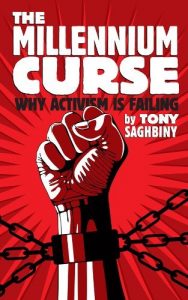You can't successfully operate in a distributed/remote work model unless your organization is built on trust.
So many teams and companies are wrestling with questions around if and how to continue some version of distributed/remote work, now that public health concerns may not require it any longer.
Unfortunately, these conversations often focus on the mechanics of distributed work or in-person/distributed hybrid models: how many days per week, schedules, locations, finances, technology tools and more.
These are important considerations, but without a culture of trust to start, it's like choosing the color of a bicycle that has no wheels.
Managers and supervisors need to trust the people they manage and supervise. If you don’t trust that your people are there to do their best for the success of the organization, and to figure out a way of working that fits their needs and their role or team's needs, no amount of remote work tools or tips are going to help. If you don't empower and enable people to thrive in their work, and acknowledge them when they do, a distributed work model will lead to poor performance, isolation, resentment and worse. (Tip: this is also true in in-person work environments.)
Individual contributors who work together need to trust each other. If you don't trust that your co-worker is doing their best to balance the long-term interests of the organization and their role with their own health and wellness, no amount of communication tools or stand-up meetings is going to help. If you can't be gracious and generous with your co-workers around flexible scheduling, stepping away or taking time off when they need to, offering support and encouragement, and expecting all of that for yourself as well, then a distributed work model will bring out the worst in your professional interactions and relationships.
Is it okay to "trust but verify"? Is it okay to have systems of check-ins and measurement and reviews? Sure! But these should be built on the assumption that the people being verified, checked-in on, measured and reviewed are doing their best to fulfill the goals of their position in the context of everything else going on in the organization and in their personal lives. Instead of being about punishing or scolding, they should focus on offering guidance, direction, constructive feedback, support and encouragement — again, trusting that people are there to do their best work for the long run, and helping them get there.
What if you don't have that trust? What if the people in your organization assume the worst about each other's intentions? What if you can't possibly imagine letting a co-worker decide for themselves, in consultation with their team and stakeholders, what work environment, practices, schedule, tools and timelines make the most sense given everything you're trying to accomplish together? Then there's no way you're going to be able to thrive as a distributed team, or maybe at all, until that trust is repaired or rebuilt.
Can a team work effectively in a distributed model without trust? Sure, for a while. But it comes at the expense of mental health, job satisfaction, a sense of ownership, productivity and long-term engagement. The work will eventually suffer, the people will eventually suffer, things will break. This is not the way to build or grow an organization. (Tip: this is also true in in-person work environments.)
Successful distributed work requires trust. Without it, everything else may be a waste of time.
Disclaimers, notes and further reading:
- No, I'm not saying that in-person organizations are inherently operating without trust. Nor am I saying that the proper alternative to distributed-without-trust is in-person-without-trust. So many in-person organizations have come to equate "at your desk looking busy" with "high performing hard worker" and we need to unlearn those unhealthy models about what trust in the workplace looks like.
- If the people you've hired don't seem trustworthy, then you may have hired the wrong people, but it's more likely that you or someone else set a bad example that everyone else is just following. Figuring out what can be salvaged is hard work, but it's essential. Abbie Moore has a great article on how to get started rebuilding trust.
- One way you can build trust is by frequently delegating reversible and/or inconsequential decisions.
- I personally don't think hybrid models — some people colocated in an office, some people remote — work well or are sustainable.
- Power works differently in a distributed organization. Lean in to those differences.
- You can't have real trust without transparency. Default to having everything happen out in the open, including how you make decisions, handle conflicts, learn from mistakes, document progress. If it's not uncomfortable, you're probably not being open enough.
Photo by Belinda Fewings


